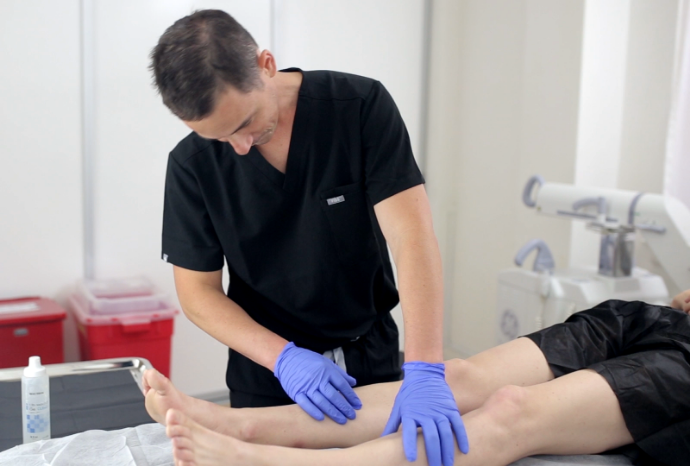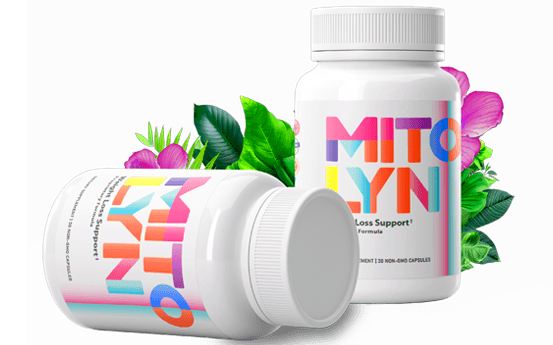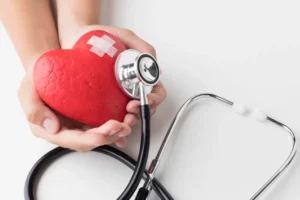What Type of Doctor Should I See for Varicose Veins?
Varicose veins are a common condition that affects many people, particularly as they age. These enlarged, twisted veins are often seen in the legs and can be painful or unsightly. If you’re experiencing symptoms such as swelling, aching, or visible bulging veins, you may be wondering, “What kind of specialist treats varicose veins?” Seeking the right medical professional is crucial for effective treatment. In this article, we’ll explore the various types of doctors who specialize in varicose veins and the treatments they provide. Additionally, we’ll discuss how to find the right vein treatment clinic for your needs.
What Kind of Specialist Treats Varicose Veins?
If you’re dealing with varicose veins, it’s essential to see the right specialist to get the best treatment. There are several types of doctors and healthcare providers who are trained to manage and treat varicose veins.
1. Vascular Surgeons: The Leading Specialists for Vein Treatment
Vascular surgeons are medical professionals who specialize in diagnosing and treating conditions of the circulatory system, including varicose veins. They are trained to perform surgical procedures to treat varicose veins, as well as minimally invasive treatments. Vascular surgeons use a variety of techniques, including:
- Endovenous Laser Treatment (EVLT): A minimally invasive procedure that uses laser energy to close off damaged veins.
- Sclerotherapy: A treatment where a solution is injected into the vein to cause it to collapse and eventually fade.
- Phlebectomy: A procedure to remove varicose veins through small incisions.
Vascular surgeons are typically the go-to specialists for complex cases of varicose veins, particularly when surgery is required. If you have significant varicose veins or complications such as ulcers, blood clots, or bleeding, a vascular surgeon is the best option for treatment.
2. Phlebologists: Experts in Vein Disorders
Phlebologists are medical professionals who specialize in the diagnosis and treatment of vein diseases, including varicose veins. They are often dermatologists or general practitioners who have additional training in vein health. Phlebologists typically handle less invasive treatments for varicose veins, such as:
- Sclerotherapy for smaller veins
- Endovenous laser ablation for larger veins
- Ultrasound-guided sclerotherapy for veins that are deeper in the legs
Phlebologists may work closely with vascular surgeons for cases that require more intensive surgical intervention. However, they are well-versed in the non-surgical treatments that are effective for varicose veins, making them a great option if your varicose veins are in the early stages or not causing major complications.
3. Interventional Radiologists: Non-Surgical Solutions
Interventional radiologists are another option when it comes to treating varicose veins. These specialists use imaging techniques like ultrasound to guide minimally invasive procedures for vein treatment. Interventional radiologists may perform:
- Endovenous laser treatment (EVLT) to close veins using laser energy
- Radiofrequency ablation (RFA): A procedure that uses heat to close problematic veins
- Sclerotherapy for smaller veins
While interventional radiologists don’t typically perform surgery, they specialize in non-invasive or minimally invasive treatments that can help address varicose veins effectively.
4. Dermatologists: Specialized in Skin and Vein Ailments
Dermatologists are skin specialists who often treat varicose veins that are more cosmetic in nature rather than medically necessary. If your varicose veins are causing visible skin changes or are mildly uncomfortable, a dermatologist might be able to provide a solution. Some dermatologists are trained in:
- Sclerotherapy for smaller veins
- Laser treatments for vein visibility
While dermatologists are excellent at managing the appearance of varicose veins, they may refer you to a vascular surgeon or phlebologist if your condition is more severe or requires surgical intervention.
5. Cardiologists: For Vein-Related Heart Issues
Cardiologists typically focus on heart and circulatory system health, but they may also help with vein-related problems, particularly if varicose veins are a symptom of more significant heart or vascular issues. Cardiologists may provide treatment or refer you to a vascular specialist if varicose veins are linked to cardiovascular health.
What Can I Expect at a Vein Treatment Clinic?
When seeking treatment for varicose veins, it’s important to visit a reputable vein treatment clinic. A vein treatment clinic will provide you with comprehensive care tailored to your specific needs, including a variety of diagnostic and treatment options.
- Initial Consultation
Your first visit to a vein treatment clinic will typically include a detailed consultation. During this appointment, the doctor will:
- Ask about your symptoms (pain, swelling, etc.)
- Review your medical history and family history of varicose veins
- Perform a physical examination of your veins and legs
In many cases, the doctor will also use ultrasound to get a detailed look at your veins. Ultrasound is a non-invasive imaging technique that helps the doctor evaluate the size and condition of the veins.
- Treatment Plan
Once your doctor has a clear understanding of your varicose veins, they will discuss your treatment options. These may include:
- Endovenous laser treatment (EVLT): A minimally invasive procedure where a laser is used to close off damaged veins.
- Radiofrequency ablation (RFA): A technique that uses radiofrequency energy to close the vein.
- Sclerotherapy: A procedure where a solution is injected into the vein to make it collapse.
- Phlebectomy: The surgical removal of varicose veins.
Your doctor will help you choose the best treatment based on your health, the severity of your varicose veins, and your desired outcomes.
- Post-Treatment Care
After your treatment, your doctor will provide instructions for post-care. This may include wearing compression stockings, taking it easy for a few days, and attending follow-up appointments to monitor your progress. In most cases, people can resume normal activities within a few days after minimally invasive procedures.
How Do I Choose the Right Vein Treatment Clinic?
When selecting a vein treatment clinic, it’s essential to consider the following factors:
- Experience and Specialization: Ensure the clinic specializes in varicose vein treatments and has experienced professionals, such as vascular surgeons, phlebologists, or interventional radiologists.
- Treatment Options: The clinic should offer a range of treatment options, from conservative management to advanced, minimally invasive procedures.
- Reputation: Look for clinics with positive patient reviews and testimonials.
- Consultation and Diagnosis: Choose a clinic that offers a thorough evaluation, including ultrasound, to help guide your treatment plan.
Conclusion
If you’re asking, “What kind of specialist treats varicose veins?” the answer depends on the severity of your condition. For more complex cases, a vascular surgeon or interventional radiologist may be your best option. For less severe cases, a phlebologist or dermatologist may provide sufficient care. Regardless of the specialist you choose, a reputable vein treatment clinic will offer personalized, comprehensive care tailored to your needs. Be sure to consult with a specialist who can recommend the most effective treatment based on your individual case, ensuring you get the best possible results for your varicose veins.













